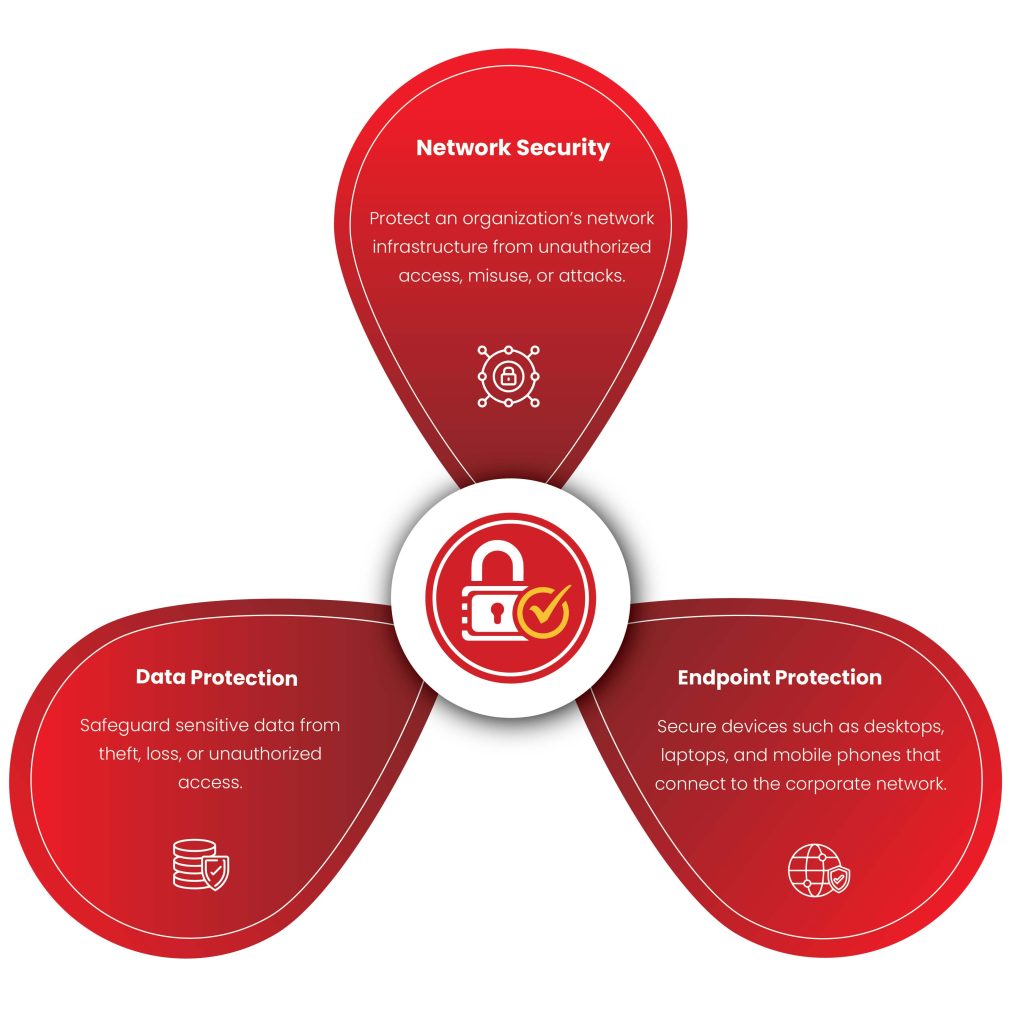Cloud Security through Penetration Testing
Cloud penetration testing is an essential practice for ensuring the security of cloud-based systems and infrastructure. As businesses increasingly migrate to cloud environments, it becomes crucial to identify and address potential vulnerabilities that could expose sensitive data or systems to cyberattacks. This type of testing simulates real-world attacks on cloud services such as Amazon Web Services (AWS), Google Cloud Platform (GCP), and Microsoft Azure to uncover weaknesses in areas like infrastructure configurations, access control, application security, and data protection.
By identifying misconfigurations, assessing API security, and ensuring proper encryption, cloud penetration testing helps organizations protect their digital assets, maintain regulatory compliance, and reduce the risk of data breaches. As cloud environments become more complex, regular penetration testing is necessary to stay ahead of evolving cyber threats and safeguard the integrity of cloud-hosted data and applications.
Cloud penetration testing is an essential part of maintaining the security of modern cloud environments. As organizations continue to adopt cloud services, ensuring the integrity and protection of data, applications, and infrastructure is critical.

Key Aspects of Cloud Penetration Testing
Cloud penetration testing involves assessing the security of cloud environments by simulating real-world cyberattacks. Key aspects of cloud penetration testing include evaluating the configuration of cloud services, identifying vulnerabilities, and testing the effectiveness of security controls in place. One of the most critical elements is assessing cloud infrastructure configurations, ensuring that virtual machines, storage, and networking components are set up securely to avoid exposure to potential threats. Access control and identity management are another key focus, as improper IAM policies can provide unauthorized users with access to sensitive data or cloud resources.
API security is also critical, as many cloud environments rely heavily on APIs for integration, which can be vulnerable to attacks if not properly secured. Additionally, data protection is a priority, with penetration testers verifying that sensitive data is encrypted both at rest and in transit, and that proper data access controls are implemented.
Finally, third-party integrations and shared responsibility models are examined to ensure that both the cloud provider and the customer are effectively managing their respective security duties. By addressing these key areas, cloud penetration testing helps organizations identify and fix vulnerabilities before they can be exploited, ultimately enhancing the overall security and reliability of cloud-based services.
Expert Security, Trusted Solutions

We specialize in delivering robust cybersecurity solutions with precision and expertise. From comprehensive assessments to 24/7 monitoring and incident response, our team is committed to safeguarding your business. We understand the unique security needs of each client and work closely to design tailored solutions that protect your digital assets. Whether it’s conducting penetration testing, ensuring regulatory compliance, or providing employee training, Cybivalue is your trusted partner in cybersecurity. Let us handle the complexities of security so you can focus on what matters most—growing your business with confidence.
What makes us special & Why clients choose us?
Projects completed
International Standards
Success Rate
Global Presence
Overview of Critical Cybersecurity Services

1. Network
Security
Protects the network infrastructure from attacks, ensuring that only authorized users can access systems and data.

2. Data
Protection
Involves safeguarding sensitive data from breaches, ensuring confidentiality, integrity, and availability.

3. Incident
Response
A service that focuses on responding to and mitigating the damage caused by cybersecurity incidents or breaches.

4. Cloud
Security
Cloud Security Ensures that data and services hosted on the cloud are secure from potential threats.
The Importance of Cloud Penetration Testing
Identifying Misconfigurations and Weaknesses
Identifying misconfigurations and weaknesses in cloud environments is a crucial aspect of cloud penetration testing. Cloud systems are complex and highly dynamic, making it easier for misconfigurations to occur. These misconfigurations, such as improperly set permissions, unsecured data storage, or exposed services, can leave the environment vulnerable to cyberattacks. By identifying and rectifying these issues, organizations can significantly reduce the risk of exploitation and ensure their cloud infrastructure remains secure against cyber threats.
Identifying misconfigurations and weaknesses is an essential part of cloud penetration testing because even small mistakes in cloud configurations can lead to significant security risks. Cloud environments are typically shared, with various users, services, and applications interacting, which increases the complexity of managing access and security settings.


Securing Multi-Tenant Environments
Securing multi-tenant environments in cloud computing is a critical challenge due to the shared nature of resources among different users or organizations. In a multi-tenant environment, multiple customers share the same physical infrastructure, which can create security risks if not properly managed. Penetration testing helps identify vulnerabilities specific to multi-tenant setups, such as improper isolation between tenants, weak access controls, or inadequate data encryption. Attackers could potentially exploit these weaknesses to gain unauthorized access to data belonging to other tenants or disrupt the services of different organizations sharing the same cloud environment.
Penetration testers simulate attacks to assess the effectiveness of the isolation mechanisms and ensure that sensitive data remains protected within each tenant’s environment. Additionally, they evaluate the configuration of identity and access management (IAM) policies to make sure that each tenant’s access is strictly confined to their resources.
Protecting Against Data Breaches
Protecting against data breaches is a top priority for organizations, especially in cloud environments where large volumes of sensitive information are stored and transmitted. A data breach can occur if unauthorized individuals gain access to confidential data, potentially leading to financial loss, reputational damage, and legal consequences. Penetration testing plays a vital role in identifying vulnerabilities that could be exploited to access sensitive information. By simulating real-world cyberattacks, penetration testers assess the security of data storage, encryption practices, access control policies, and network configurations. They evaluate whether sensitive data is adequately protected both at rest and in transit, ensuring that encryption methods are robust and key management processes are secure.
Testers also examine authentication mechanisms to verify that only authorized users can access critical systems and data. By uncovering weaknesses and vulnerabilities before they are exploited, penetration testing helps organizations proactively strengthen their defenses, reduce the risk of data breaches, and ensure compliance with data protection regulations like GDPR and HIPAA.


Evaluating Security of Cloud Service Integrations
Evaluating the security of cloud service integrations is a critical step in ensuring the overall integrity and protection of an organization’s cloud infrastructure. As businesses increasingly rely on multiple cloud services and third-party applications, the complexity of their cloud ecosystems grows, introducing potential security risks. These integrations often involve connecting various cloud platforms, applications, and services, which can lead to vulnerabilities if not properly secured. Penetration testing helps assess these integrations by simulating attacks to uncover flaws in the way services interact. This includes checking for weak authentication methods, insecure API connections, and improper data handling between different systems.
Additionally, testers evaluate how data is shared across integrated services and ensure that encryption, access controls, and authorization mechanisms are consistently applied. Any misconfiguration or security gap in these integrations can lead to unauthorized data access or system compromise. By identifying and addressing these weaknesses, organizations can strengthen the security of their cloud service integrations, ensuring that data flows securely between services without exposing critical information to attackers.


